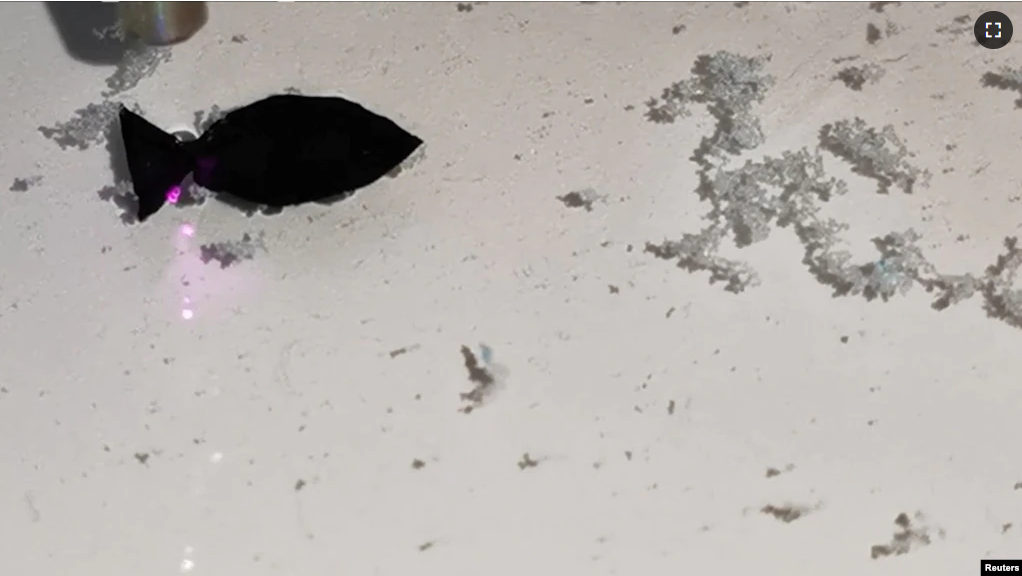Chinese scientists say they have developed a robotic fish that can remove microplastic particles from water environments.
Researchers working on the project say the robots could help to clean up plastic pollution in oceans around the world.
The robotic swimmers are about 1.3 centimeters long. They are made of a soft chemical compound. The robots are designed to absorb microplastics while moving through the water.
The project was launched by a team at Sichuan University in southwestern China. The researchers said the robots have already performed well in shallow water and they plan to carry out more tests in deeper waters.
The scientists reported their findings in a new study in Nano Letters. The publication comes from the American Chemical Society, a nonprofit organization supported by the U.S. Congress.
The robotic fish were built to target microplastic particles, which are smaller than five millimeters. Studies have confirmed that microplastic pollution has been discovered in many natural environments. The material comes from the breakdown of manufactured plastic products and industrial waste.
The team said the robots can be controlled by light. Turning “a near-infrared light laser” on and off causes the fish’s tail to move back and forth, the American Chemical Society said.
The robotic fish can swim up to 2.76 body lengths per second. The researchers said this is faster than most similar soft robots.
Wang Yuyan was a member of Sichuan University’s research team. She told Reuters news agency that the small, lightweight robot is currently being used to collect microplastics for research purposes. But Wang added that the team plans to expand that use so the robot fish can remove larger amounts of microplastic waste from deep ocean areas.
The fish can take in different kinds of microplastics and even repair itself when damaged, the researchers said. And if a robot fish is accidentally eaten by a real fish, it could safely digest the material, the team added.
Wang said similar robots could be developed to be placed inside the human body to remove unwanted materials or disease.
I’m Bryan Lynn.
Reuters reported this story. Bryan Lynn adapted the report for VOA Learning English.
___________________________________________________________
Words in This Story
absorb – v. to take liquid in through a surface
shallow – adj. not deep
digest – v. to change food in the stomach into substances the body can use
